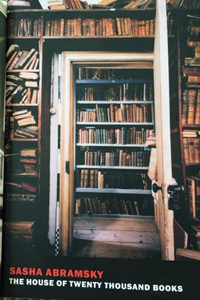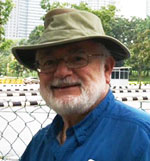 By Oliver B. Pollak
By Oliver B. Pollak

RICHMOND, California — This story is based on The House of Twenty Thousand Books by Sasha Abramsky published in 2014. My wife Karen picked it up from the half price table at Powell’s Books in Portland last summer. Abramsky, an English born scholar lives in the Sacramento area. I read the book while staying in Jackson Hole over Passover inadvertently discovering a Passover story within its 360 pages.
Abamsky tells the amazing story of his beloved grandfather, Chimen Abramsky who was born in 1916 in Russia. His great grandfather, Yehezkel Abramsky, a renowned rabbi was born in 1886 in Belarus and imprisoned in 1929 in Siberia. When released in 1932, he took his family to England where he rose to head the London Beth Din rabbinical court for 17 years. He retired in 1966, moved to Israel, and died in 1976.
His rebel son Chimen became an atheist, a communist and a stalwart Stalinist. He accumulated an unprecedented collection of books, manuscripts and ephemera on communism and socialism, including correspondence by Karl Marx. His home at 5 Hillway near Hampstead Heath in London became a salon for many prominent communist intellectuals. During my first 8 years I lived 2.9 miles from there. In 1970, while researching my doctorate and living in Golders Green, I lived 6.3 miles away.
In the late 1930s Chimen worked at London’s storied Jewish bookshop, Shapiro, Valentine and Co., where he met Miriam Nirenstein, whom he married in 1940. Miriam, or Mimi, fed countless comrades, friends and family. They believed that the Soviet Union was not anti-Semitic, it was anti-religious. Dogma and ideology die hard. He left the party after the suppression of the Hungarian revolt, and regretted his stubborn wrongheaded support of Stalin’s excesses for the remainder of his life.
Chimen turned his devotion to ideas to the study of Jewish history. He did this intellectually and academically but not spiritually. He amassed thousands of rare Hebrew, Yiddish, and European Judaica with the same energy he had applied to his Communist collection. The house fairly burst or overflowed with paper treasures. 5 Hillway became a go-to destination for Judaic scholars around the world. Abramsky builds his narrative around the books in the master bedroom, hallway, kitchen, front room, dining room.
Throughout both halves of Chimen’s life, communist and Judaic scholar, he and Mimi kept a kosher house, separate dishes for dairy and meat, and maintained the Passover ritual.
He owned a Haggadah published in 1560 in Mantua, in northern Italy, a center for Jewish printing, and a Yiddish Haggadah from about the same time. His most valuable Haggadah was a “gorgeous, twenty-five leaf, illuminated manuscript” designed in Hamburg in 1829. “Chimen never divulged” how he acquired it. It spent much time in a bank vault. It now resides at the Center for Jewish History in Manhattan.
Thirty friends, some from his Communist Party days, family, and overseas visitors sat at the dining-room table and three or four fold-up wooden tables complete with sweet kosher Manischewitz wine. Chimen read the entire Haggadah “at breakneck speed.” Chimen wrote in 1995, “The dinner was supreme. The Haggadah part was well orchestrated. We finished after midnight.” Chimen died in 2010.
Preparing for the Seder, participating at the Seder table, and declaring, “Next year in Jerusalem” led to further learning. Treat yourself to Yosef Hayim Yerushalmi’s Haggadah and History published by the Jewish Publication Society in 1975 and 1997. It contains 200 images of Haggadahs published from the 15th century to 1972. New Haggadahs appear every year.
I belong to the Institute of Historical Study in the Bay Area. They have WIP, Work in Progress meetings. A week after returning to California from Wyoming, Peter Stansky, Stanford University Emeritus Professor of History, hosted a presentation on his research about Leonard Woolf’s awkward relationship with Jewish life. His spouse was Virginia Woolf. Chimen was a visiting scholar at Stanford and 86-year old Peter had fond memories of him. Is it a small world after all.
*
Pollak, a professor emeritus of history at the University of Nebraska at Omaha, is a freelance writer now based in Richmond, California. He may be contacted via oliver.pollak@sdjewishworld.com
Pingback: How a Jewish story may link to others | San Diego Jewish World